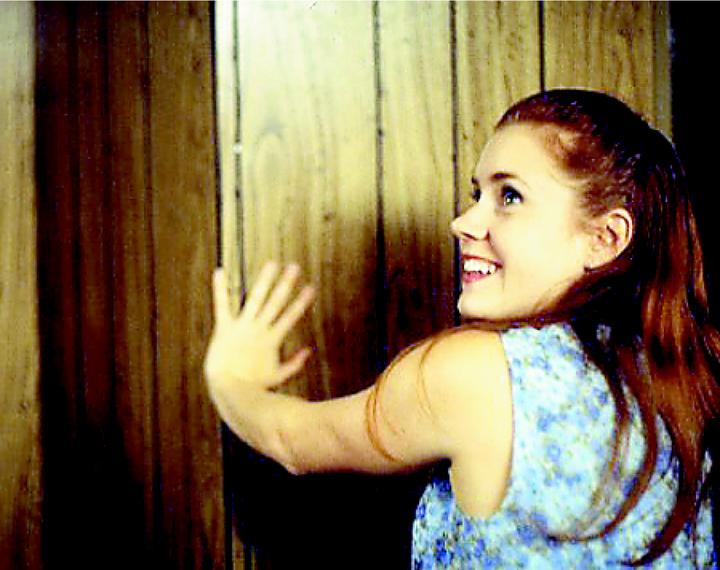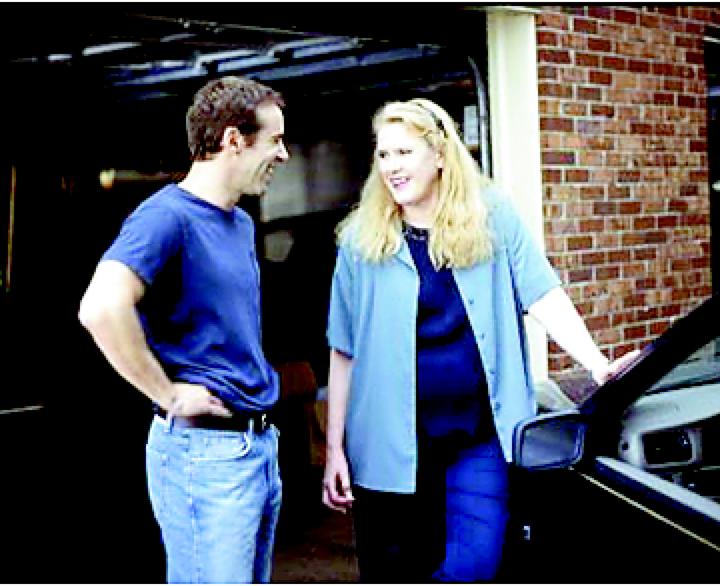This art house examination of (appropriately enough) art and houses isn’t the sort of bombastic, plot-driven drivel you’ve been dealing with for the last three months. The film kicks off its big cast by introducing us to Madeline (Embeth Davidtz, Schindler’s List), a lovely British-born art dealer who owns a gallery in Chicago which specialized in primitive “outsider†art. (That takes care of the art.) While chasing down an oddball, Henry Darger-like painter in rural North Carolina, Madeline finds herself faced with the prospect of mixing business with pleasure–spending time with her newlywed husband’s earthy Southern clan for the very first time. (That takes care of the house.)
Aside from his fading accent, George (Alessandro Nivola, Face/Off, Mansfield Park, Jurassic Park III) doesn’t seem like much of a redneck. Come to think of it, Madeline doesn’t really know much about him, thanks to the couple’s whirlwind romance. Shortly after arriving at his family’s upscale white trash digs (all wood paneling, doilies and ceramic animals), Madeline at least gets the hint that George has been fleeing his Southern roots for quite some time.
George’s mother Peg (Celia Weston, who launched her career twentysome years ago as a sassy waitress on “Aliceâ€) is a sour-lipped matriarch who doesn’t bother to hide her open contempt for George’s snobby choice in spouses. George’s dad Eugene (Scott Wilson, Monster) is a pre-senile retiree who quietly avoids all conflict, puttering around in his garage workshop. George’s brother Johnny (Benjamin McKenzie, fresh off “The OCâ€) is a sullen layabout who has moved back into his parents’ house with his very pregnant wife Ashley (Amy Adams).
Upon arrival, it’s immediately evident that Madeline–for all her serious appreciation of rural Southern arts and crafts–really has no connection to this world. She isn’t some simple carpetbagging caricature, cynically appropriating someone else’s culture for profit; but she’s obviously out of her element when not discussing the intellectual merits of art over champagne and crudités. She can speak to a schizophrenic, Psalm-quoting painter. (“I love all the dog heads and the computers … and the scrotums,†says Madeline, quite genuinely, perusing the artist’s depiction of Antietam.) But she can’t quite figure out how to communicate with her husband’s family.
Shortly after the newlyweds settle into an air mattress in the guest room, Ashley emerges from the crowd and latches on to Madeline–partly because the beautiful, sophisticated foreigner is like the world’s greatest fashion doll and partly because this mother-to-be is so desperately lonely. Her husband only communicates in dissatisfied grunts and her in-laws barely acknowledge her existence. She spews out a near unbroken stream of naive questions and artless comments to Madeline, who absorbs it all with good-natured grace. “You don’t wear much makeup do you,†asks Ashley. “Because you could get away with wearing a lot more.†Adams is the standout performer here (she walked away with one of those trophies at Sundance) and her character–simple, open, honest and ultimately a real sweetheart–is the true catalyst here.
Junebug is a lot about what remains unspoken in relationships. The backstory that got all these characters to this tense, mock-polite moment is left largely unexpressed. We see little glimpses of it, though, in how these people carry themselves, in what they do and in what they say under their breath.
While Ashley has her baby shower, Johnny sulks in the basement, flipping through television channels. He passes a documentary on meerkats. He knows his wife is obsessed with meerkats. Suddenly, for the first time, he’s a blur of activity, trying to find a tape to record this for his wife. He fails to work the VCR, and when his wife waddles down looking to help, he screams at her. It’s a heartbreaking moment, because Johnny’s rash act of kindness remains unseen by anyone but us.
First-time writing/directing duo Angus MacLachlan and Phil Morrison weave some deft humor amid the percolating drama without ever stooping to crude redneck stereotypes. Real people–even ones in a crappy mood–have a sense of humor, and Junebug is happy to acknowledge that fact. A quirky soundtrack from Yo La Tenga and some colorfully drab location shooting add to the offbeat realism.
Junebug isn’t the sort of high-concept film that takes its characters from point A to point Z in an action-filled two hours and two minutes. Junebug, instead, takes its own sweet Southern time getting its characters from point A to a place slightly past point A, but not quite all the way to point B. In the end, you realize the film could have featured a little more progress. (The largely tacit George, for example, never really emerges from the background.) But as a quiet, observational look at the minuscule moments that go into deciding what, in life, is truly important to us flawed humans, Junebug is a sweet and sour treat.




